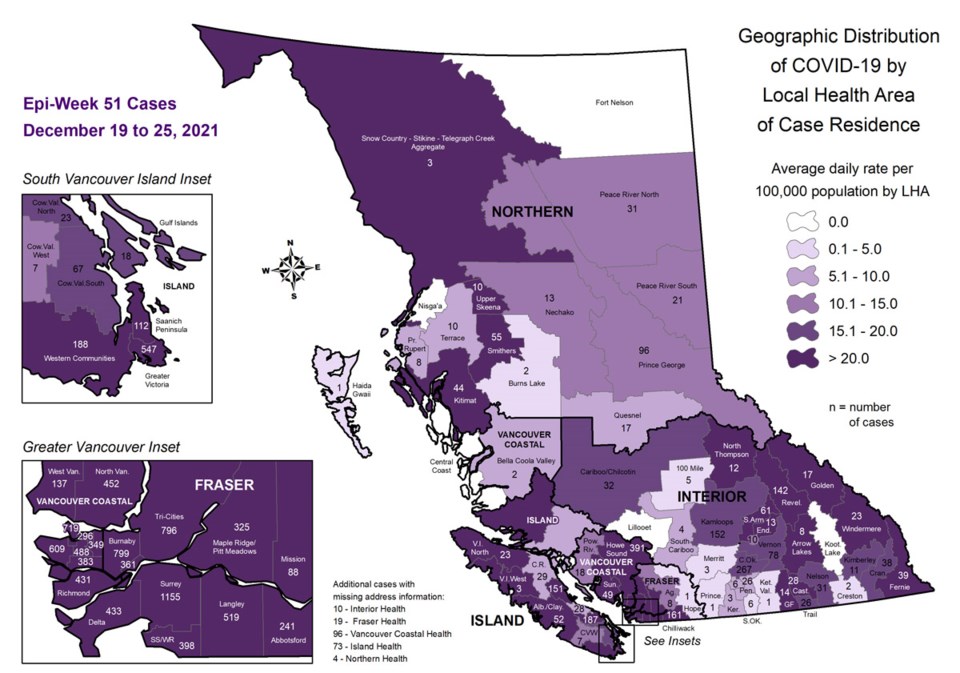The number of active cases of COVID-19 in the Northern Health region nearly doubled over the Christmas break.
On Dec. 23, the B.C. Centre for Disease Control reported 217 cases of COVID-19 in the Northern Health region. On Wednesday, that number had jumped to 431 – with 99 new cases reported in the past 24 hours.
The number of people hospitalized with COVID-19 in the region grew from 11 on Dec. 23 to 17 on Wednesday, six of which were reported to be in intensive care.
Two new COVID-related deaths were recorded in the Northern Health region since Dec. 23, bringing the north’s death toll from the pandemic up to 275.
As of Wednesday, seven cases of the new Omicron variant of COVID-19 have been detected in the Northern Health region, according to data released by the B.C. Ministry of Health. A total of 2,452 cases of the highly-contagious variant have been detected in the province, concentrated in the Vancouver Coastal Health and Fraser Health regions.
During the week of Dec. 19 to Dec. 25, 96 new COVID-19 cases were reported in the Prince George local health area, the B.C. CDC reported.
As of Wednesday, there have been a total of 18,777 cases of COVID-19 in the Northern Health region, of which 18,058 people have recovered.
A total of 421,111 doses of COVID-19 vaccine have been administered in the Northern Health region to date.
In a public update on Monday, provincial health officer Dr. Bonnie Henry said the highly-infectious Omicron variant of COVID-19 is driving a surge in cases across B.C. The province saw nearly 3,000 new cases on Wednesday, and the number of active cases province-wide is more than 16,000.
"Omicron has left us with more questions than answers, and is spreading through our communities in a way we haven't seen in the past two years," Henry said. "What we don't know yet is how severe this illness will be... Despite our best efforts, we are not going to prevent this next wave, and all we can do now is mitigate it."
While the average incubation period for previous variants of COVID-19 was six days on average, for Omicron it is about three days, she said. That often means by the time people realize they are sick, get tested and get results, they have already infected others around them.
The Omicron variant is also more likely to reinfect people who have had COVID-19 previously, and aren't vaccinated, she said. And there appears to be a higher risk of breakthrough cases among the infected, she added.
"(But) the encouraging trend we are seeing around the world is, for people who are fully vaccinated, illness is mild," Henry said.
Also on Wednesday, Henry and B.C. Education Minister Jennifer Whiteside announced schools in the province won't return to regular classes until Jan. 10.



.png;w=120;h=80;mode=crop)